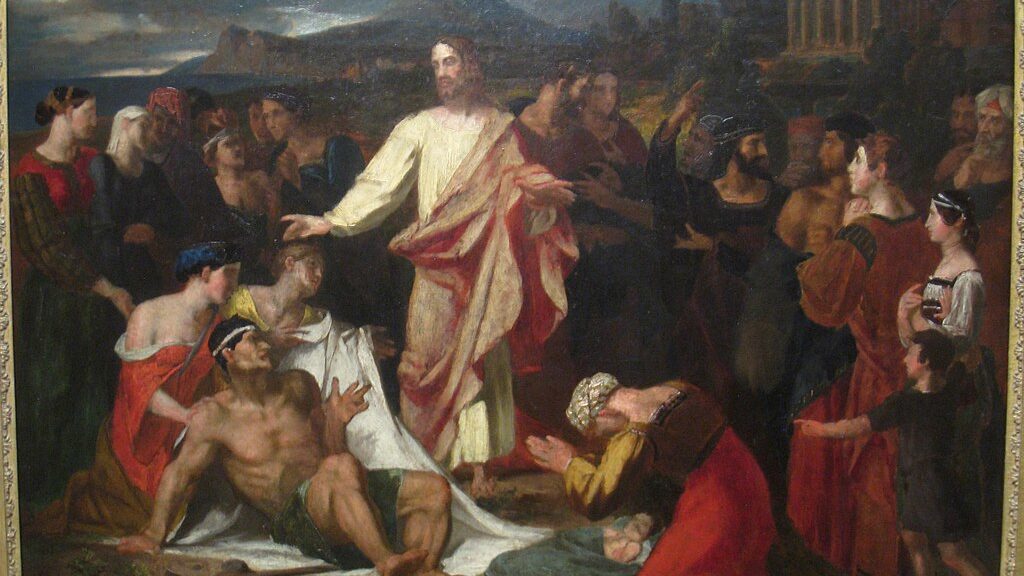On Oct. 9-10, leaders from Catholic social justice, health care, and charitable ministries gathered at Christ Cathedral in Garden Grove, California, for the statewide conference “Pilgrims of Hope: Serving the Vulnerable.” The following is adapted from Archbishop Gomez’s homily.
This is an important gathering for our Church and society. The Church’s social doctrine, grounded in God’s love and the dignity of every person, offers wisdom and hope that the people of our times urgently need.
First, let us remember our friend and co-worker, Father Christopher Ponnet, who passed away earlier this week. His sudden death is a great loss and he will be deeply missed.
For more than 30 years, Father Chris worked for social justice and health care for the poor and most vulnerable. Father Chris lived the Gospel we heard today, seeking the face of Jesus in the poor, the prisoner, those on death row, the immigrant. As we reflect on our mission of service to the poor and vulnerable, let us keep him close in our prayer.
On Oct. 9, Pope Leo XIV issued a powerful new reflection on love for the poor, titled “I Have Loved You.” This thoughtful, prayerful document traces the Church’s love for the poor from the preaching of Jesus to the present.
The Holy Father helps us to remember that before Jesus came into the world, before the Church, there were no social services, no organized health care, no ethic of responsibility for those in need.
The early Christians ministered to their neighbors during outbreaks of the plague, they cared for the sick and dying, they founded the first hospitals and the first charities. In your work as Catholic social ministers, you continue in this ancient and noble tradition.
Early Christians understood that in the poor we encounter a “revelation” of the living God.
In today’s Gospel, Jesus tells us that he remains with us in the hungry and thirsty, in the naked and sick, in the immigrant and refugee, in the prisoner. The love we show to the poor and vulnerable, we show to him: “Amen, I say to you, whatever you did for one of these least brothers of mine, you did for me.”
Jesus is not only commanding us to be kind, he is calling us to seek him and serve him in the guise of the poor.
Leo explains that in every age, in every place, the saints and the Church have always sought the Lord in the faces of the suffering and the needy. “For Christians,” he writes, “the poor are not a sociological category, but the very ‘flesh’ of Christ.”
The pope invites us to go deeper into the mystery of God’s incarnation. Not only did God become flesh, he chose to take on “a flesh that hungers and thirsts, and experiences infirmity and imprisonment.”
As Leo writes: “Contact with those who are lowly and powerless is a fundamental way of encountering the Lord of history. In the poor, he continues to speak to us.”
Love for the poor and love for the Lord are one and the same. Jesus promised to be with us always. He also told us that we will always have the poor with us.
As followers of Jesus, we always have the duty to love and serve the poor. That duty calls for charity and work for justice. We must defend the rights of the poor and work for a society where there is no more poverty, where every person has what it takes to live with the dignity that God intends for all his children.
This has been God’s desire from the beginning. As we heard in today’s first reading, God commanded Moses to build a society that has special care for the weak and the vulnerable, for immigrants and refugees, widows and orphans.
“No Christian can regard the poor simply as a societal problem,” Leo reminds us, “they are part of our ‘family.’ They are ‘one of us.’ ”
The Lord hears the cries of the poor, and he answers those cries through us. For all of us, the path to heaven passes by way of the poor and vulnerable.
As we meet Jesus today in his body and blood, given in the bread and wine of this holy Eucharist, let us ask him to renew in us our commitment to encounter him in the flesh of the poor and vulnerable.
May holy Mary, our Blessed Mother, lead us to seek her Son, so that the poor — and all of us — might know the truth of his promise: “I have loved you.”

